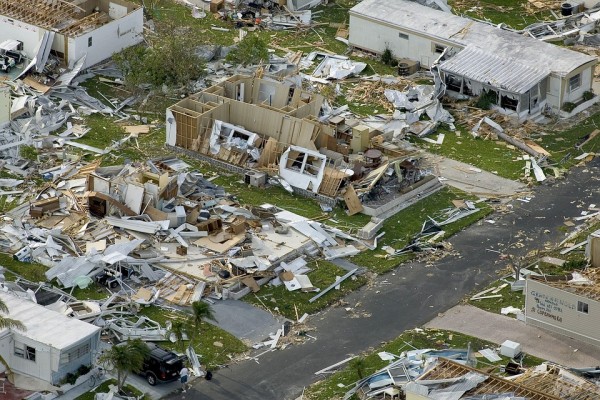
As you pack the last items of your luggage, ready for your tropical vacation, nobody likes to think about the event of a natural disaster. The thought that a hurricane could ruin your perfect ‘relaxing’ break in the sun should rightly be the last thing from your mind, but if you’re heading to a region where such natural disasters are known to occur, it can never hurt to be prepared. Of course worldwide travel insurance can provide some peace of mind that you’ll be reimbursed for your medical fees or lost valuables, but in terms of survival, some hurricane advice is absolutely essential. For that reason, we’ve compiled a list of 10 things you can do to ensure your safe return to the UK.
So, if you hear of a warning, follow these 10 pieces of hurricane advice to ensure you stay safe in the event of disaster:
1. Listen to local media sources, to stay informed
Keep an eye on local news and an ear on local radio! Latest developments will be shared this way, and they will offer insights into when any hurricane is due to strike. If the local hurricane advice is to evacuate, you’ll hear it here first!
2. Talk to your tour or travel operator
Stay in touch with your travel or tour operator. They may be able to offer additional hurricane advice and, combined with local radio reports, will let you know if you need to leave the area immediately.
3. Make alternate return travel arrangements home
If a hurricane does hit the resort and/or country you’re staying in, you can anticipate widespread damage. Airports are not above these hits, and it may take some time for them to reopen if they take some serious damage. It may be wise to make alternative travel arrangements to get back home after the incident, and rearrange home-based commitments if you have any. You could be here a while!
4. Stay inside, away from doors and windows
If a hurricane is due to hit, and you don’t have time to evacuate the area as advised, then ensure you are indoors when it is due to strike. It is absolutely essential that you ensure you are far away from all doors and windows when it strikes.
5. Make a hurricane supply kit
If you’re going to be confined to your hotel or apartment for the duration of the hurricane, make sure you’re prepared. Think enough food and water to last 24-48 hours, batteries, flashlights and medication.
6. Contact the UK consulate
The UK consulate can provide assistance for UK citizens, but only if they know you are here! Make contact before and after the hurricane.
7. Make a list of emergency contact numbers
Yes, your mobile phone may store all the contact numbers you will need, but you can’t guarantee your phone will have charge when you need to access them – and it may be impossible to charge it if the power is out in the affected areas! Make a hard copy of all the telephone numbers you will need, so you can make contact with friends and relatives somehow after the hurricane.
8. Get all your documents together before you need to evacuate
You may need to evacuate at a moment’s notice. Get all your important documents (ID, passport, travel insurance certificate, driving license, etc.) together in one place so you have everything essential to hand if you have to leave quickly.
9. Secure the building’s openings against the hurricane
Tape, board over or shutter any openings to the building – doors and windows alike. Ensure that any sliding glass doors are wedged to make sure they don’t lift up from their tracks. This will minimize the chances of injury from broken glass.
10. Take your worldwide travel insurance certificate along with you
Take your worldwide travel insurance certificate with you when you travel (you did get travel insurance, right?) Not only will you need to produce the worldwide travel insurance certificate when making a claim, but if you require emergency treatment, the hospital will want a copy when you are first admitted – otherwise you may be stuck with a huge bill you cannot afford!
Obviously, the chances of you being caught in an unexpected hurricane in the middle of your holiday are remote, but these tips can make a very real difference, and could save your life and keep you free of injury should a natural disaster occur.